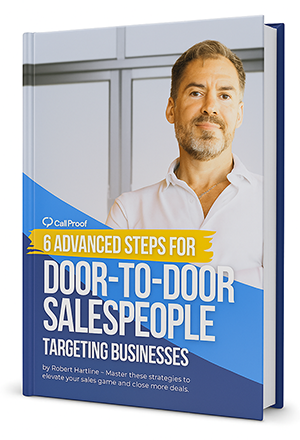In the early ’80s, there was a saleswoman who was awesome at selling mainframes. But really, she just walked into businesses and asked questions. Then she took their responses back to the engineers, they told her what the client needed, she told the customer, and they’d buy.
Obviously, the company loved her, so they sent her to school to learn more about the interworking of the mainframes. After six months of intense training, she knew everything there was to know about them. And her sales were thoroughly average after that. Why? She stopped asking questions. She thought she knew what the customers needed and stopped listening to them.
Being a rock star doesn’t mean knowing the most about a subject — it’s knowing what questions to ask so you can find the right solution.
Questions Start the Story
Qualifying sales leads is all about asking questions. Then, as you come to understand the environment of the company, you can tell your story and make a sale.
As you ask questions and talk with them about their business, you’re not only learning the information, but you’re often validating what they’re doing. Plus, they’re thinking through why they do what they do. Either way, you’re now on a deeper level of conversation.
Now you have the chance to reassure them they’re in a good spot or show them how your product meets their needs. If it’s not a good fit right now, it’s okay to admit it. Every relationship has a beginning, middle, and end. And when the timing is right for them, maybe you’ll be able to work together.
But if you ask the right questions, you’ll know if they have needs you can meet. Then you share your story as a part of that conversation. Maybe you say, “This is why we’re here. Our clients are the same way you are. That’s why I asked you the question. We can solve your problem. You just need to decide how important this need is to your business.”
Related: Sell the Value of Your Product, Not the Price
If You Don’t Qualify Leads
So what happens if you don’t qualify a lead? Well, a number of things can go wrong. Here’s a few:
- Lose sale opportunities
- Waste time
- Send wrong marketing material
- Nurture prospects in the incorrect way
- Propose the wrong solution
- Never figure out what’s really going on
Some of those problems can be avoided if you plug prospects into a marketing analysis to see user variables. But qualifying a lead through conversation takes the business relationship to the next level. Sales happen when you have conversations that lead to the right solutions.
Signs of a Qualified Prospect
So how do you know if a prospect is a good fit? Well, during the conversation, you’ll know if your product lines up with their needs. But in order for them to pull the trigger, they’ll need trust, timing, and money.
Trust begins as you start the relationship and develops over time. As you’re building trust, be consistent. Stay in contact and follow through with what you say. The timing also has to be right. If you have the right process, you’ll know if it’s the right time for them. Money is the easiest factor to check. Look at their business size compared to your cost and see if they can afford it.
Deal With the Decision Maker
You’ll never sell if you’re not talking to the right person. Knowing how to qualify leads is irrelevant if you aren’t dealing with the decision maker. Ask yourself, “Does this person have the authority to make purchasing decisions?”
In a business, there are asset owners (the owner of the business) and asset custodians (the directors). And the priorities of owners and custodians are completely different. If you’re selling a commodity that’s all about lowering the price per product, talk to the asset custodian. The focus is on offering products for less money.
However, if you’re selling value of service, talk to the asset owner. A service is all about the relationship. So you need to explain the benefits of the service to the person who has the most liability. Once they’re on board, they might pass you off to the asset custodian to work out the details, but it takes owner buy-in first.
Qualifying prospects don’t have to be difficult. It’s all about a conversation. Ask questions that help your prospect talk about their needs. Then you’ll know if you have the solution to make the relationship worthwhile.


